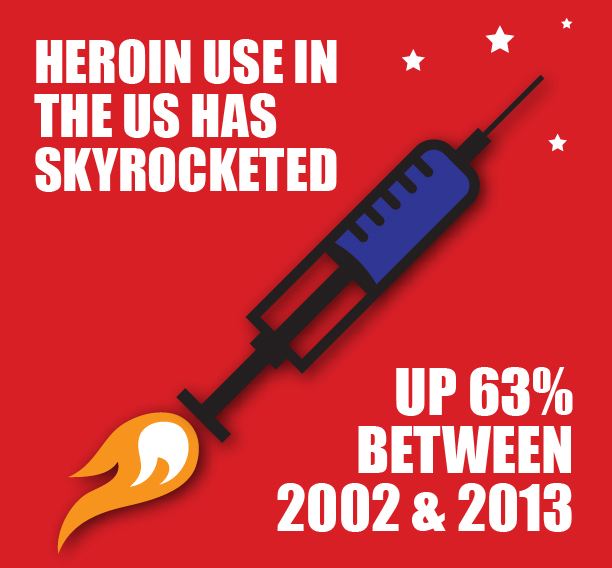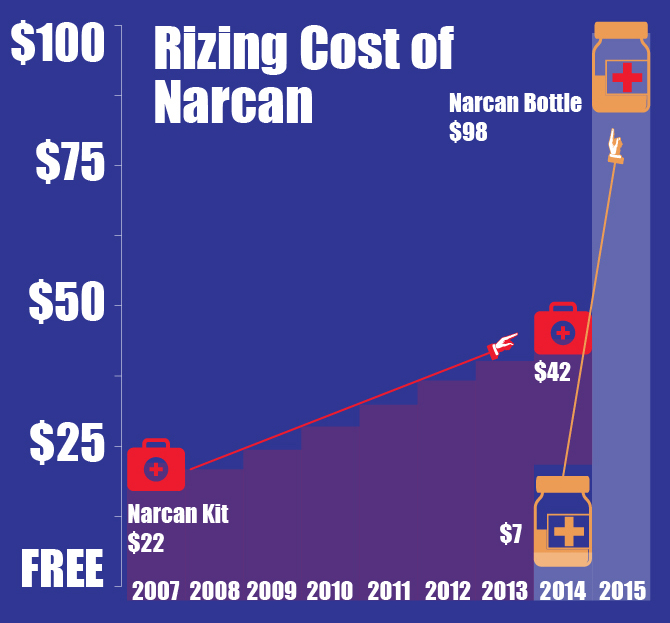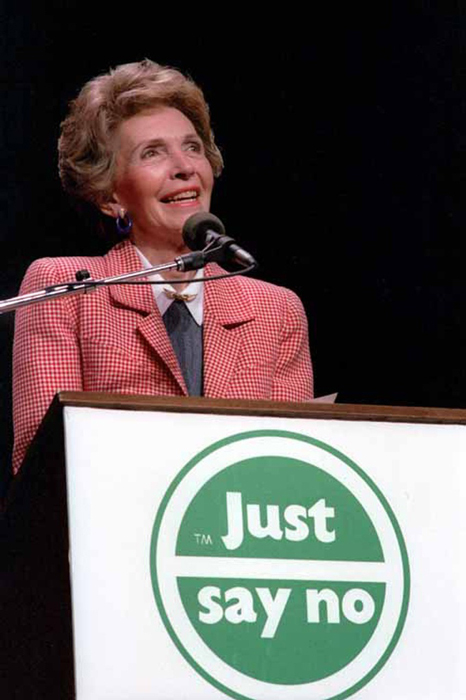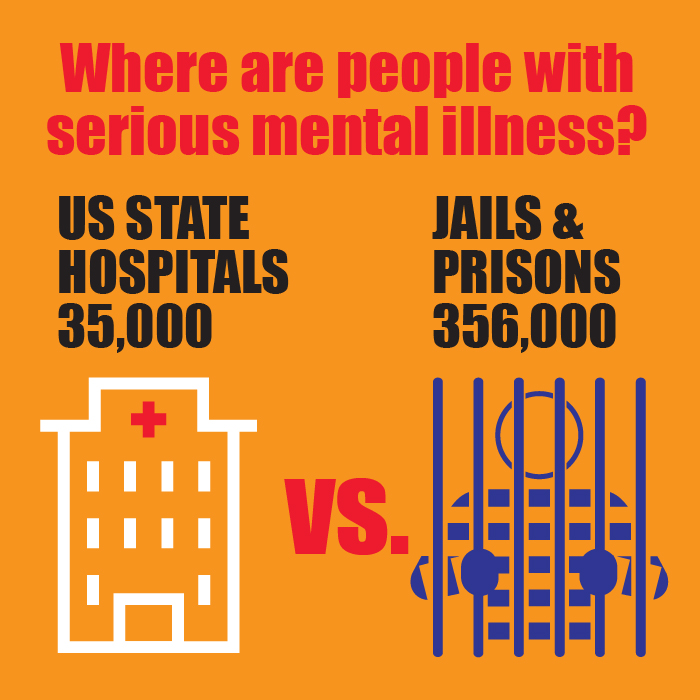President Asks for More Funds, Clintons Want More Naloxone
 The rising death toll and growing health crisis of opioid and heroin addiction are not lost on President Barack Obama nor on Democratic presidential candidate Hillary Clinton. With the U.S. experiencing a record high in overdose deaths in 2014, most of which was due to opioid abuse, both President Obama and presidential candidate Hillary Clinton have each separately proposed new legislation to combat the terrifying trend.
The rising death toll and growing health crisis of opioid and heroin addiction are not lost on President Barack Obama nor on Democratic presidential candidate Hillary Clinton. With the U.S. experiencing a record high in overdose deaths in 2014, most of which was due to opioid abuse, both President Obama and presidential candidate Hillary Clinton have each separately proposed new legislation to combat the terrifying trend.
Between the 2002 and 2013, heroin use in the United States skyrocketed by 63 percent. [1] According to the Centers for Disease Control and Prevention (CDC) heroin abuse has increased in men and women for most age groups and across all income levels. The largest spikes have occurred in the female demographic and among individuals with private insurance and higher incomes. [2]
47,055 people died from overdoses in 2014
A total of 47,055 people died from overdoses in 2014 in the U.S. – (61 percent due to opioids, including heroin), an increase of 6.5 percent from 2013. This outnumbers the amount of Americans who died from motor vehicle crashes. [3] These statistics and others have prompted the President and presidential candidates to propose legislative and budgetary actions.
Obama Requests More than $1 Billion to Fight Opioid Addiction
In early February 2016, the Obama administration announced that it would seek an extra $1.1 billion in new budget funding over the next two years to fight the growing epidemic. The increased funding would add to the more than $400 million already allotted to combat opioid abuse and addiction in 2016, which currently represents an increase of $100 million in federal spending from 2015. [4]
“This president has made clear that addressing this opioid epidemic is a priority for him, and this budget reflects this,” said Michael Botticelli, the director of National Drug Control Policy under President Barack Obama.
Hillary and Bill Clinton Push for More Naloxone
 Hillary Clinton proposed a $10 billion drug and alcohol addiction treatment plan in January to get more naloxone (an overdose antidote) in the hands of police officers and other emergency responders. Former President Bill Clinton, also in January, announced a partnership with Adapt Pharma, the maker of Narcan (the first ever naloxone nasal spray) to offer a free two-dose carton to every high school in the nation. Both Hillary and Bill have been adamant in their calls for increased efforts to battle heroin abuse.
Hillary Clinton proposed a $10 billion drug and alcohol addiction treatment plan in January to get more naloxone (an overdose antidote) in the hands of police officers and other emergency responders. Former President Bill Clinton, also in January, announced a partnership with Adapt Pharma, the maker of Narcan (the first ever naloxone nasal spray) to offer a free two-dose carton to every high school in the nation. Both Hillary and Bill have been adamant in their calls for increased efforts to battle heroin abuse.
“It’s time we recognize as a nation that for too long, we have had a quiet epidemic on our hands,” Hillary wrote in a September op-ed in the Union Leader in New Hampshire. “Plain and simple, drug and alcohol addiction is a disease, not a moral failing – and we must treat it as such.”
“We’ve got to have this in every college, every emergency response provider, and I think now the high schools too” Bill said at the annual Clinton Foundation Health Matters Initiative, referring to naloxone. [5]
There has been some worry about the high cost of naloxone limiting its availability and usage. A Narcan kit costs approximately $42 (up from $22 in 2007), while for first responders, the cost rose from $7 per bottle in 2014 to $98 per bottle in 2015. [6] National retailer CVS currently offers over the counter sales of Narcan in 15 states and plans to extend the overdose antidote to 20 other states in 2016. The current cost of a two-dose package ranges from $40 – $50. [7]
A Stark Shift in National Drug Policies
 It wasn’t that long ago that presidents and other politicians were calling for hefty jail sentences and mandatory punishments for drug abuse and addiction. President Richard Nixon declared war on drugs in 1971, and President Ronald Reagan escalated it throughout the 1980s. It was during this time that federal and state governments focused on punishment and incarceration for drug abuse, as opposed to rehabilitation, education and treatment.
It wasn’t that long ago that presidents and other politicians were calling for hefty jail sentences and mandatory punishments for drug abuse and addiction. President Richard Nixon declared war on drugs in 1971, and President Ronald Reagan escalated it throughout the 1980s. It was during this time that federal and state governments focused on punishment and incarceration for drug abuse, as opposed to rehabilitation, education and treatment.
This approach led to the rise of mandatory jail time, minimum sentencing and three-strikes policies that has made the U.S. prison system the largest in the world. [8] Despite housing a quarter of the world’s prisoners, with the majority of them incarcerated for drug offenses, drug abuse and addiction have continued to rise in the United States, proving that the previous efforts were wasted. [9]
More than 40 years after the start of the war on drugs, countless federal and state officials have called it a colossal failure.
“It has all been wrong,” Botticelli said on “60 Minutes” in December of 2015, adding that the strategy of locking up drug offenders has done nothing but overload the prison system. “We can’t arrest and incarcerate addiction out of people. Not only do I think this is really inhumane, but it’s ineffective, and it cost us billions upon billions of dollars to keep doing this.” [10]
The Movement to the Rehabilitation Approach
 As more and more people have accepted addiction as a disease, the rehabilitation over incarceration philosophy has gained steam. When individuals are thrown in jail as a result of drug abuse and addiction, their diseases remain untreated. Additionally, any mental disorders that may have contributed to the development of addiction are also untreated. Approximately 20 percent of jail inmates and 15 percent of prison inmates (approximately 356,000 total) have a serious mental illness. That’s 10 times the number of individuals with serious mental illness in all U.S. state hospitals. [11]
As more and more people have accepted addiction as a disease, the rehabilitation over incarceration philosophy has gained steam. When individuals are thrown in jail as a result of drug abuse and addiction, their diseases remain untreated. Additionally, any mental disorders that may have contributed to the development of addiction are also untreated. Approximately 20 percent of jail inmates and 15 percent of prison inmates (approximately 356,000 total) have a serious mental illness. That’s 10 times the number of individuals with serious mental illness in all U.S. state hospitals. [11]
The national success enjoyed by drug court participants across the U.S. should serve as evidence of the effectiveness of addiction rehabilitation over incarceration. [12] According to the National Association of Drug Court Professionals, drug courts reduce crime, save money, combat addiction and ensure compliance with rehab mandates. [13]
We Offer the Best Treatment Options Available
At Behavioral Health of the Palm Beaches in Florida, we realize the importance of providing high-quality treatment for men and women who are struggling with alcoholism and drug addiction. We’ve created an integrative recovery program that combines holistic, psychological, nutritional and activity-based therapies to promote mental, spiritual and physical wellness on the path to sobriety.
Our team of addiction care specialists, compassionate therapists, mental health experts and 24-hour medical staff puts our patients in the best possible position to succeed in rehab. Addiction is rarely defeated without specialized treatment to account for all of an addict’s needs and challenges. Contact us today at 888-432-2467 to learn more about our services and to begin receiving personalized addiction treatment for yourself or someone you care for.



